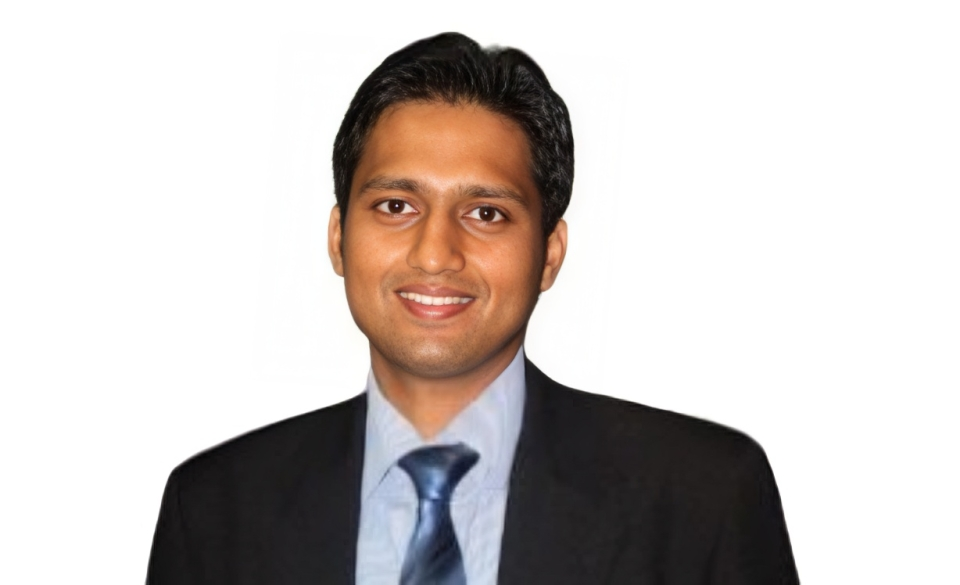This interview has been published by Anshi Mudgal and The SuperLawyer Team
Sir, you have extensive experience in civil and criminal disputes, arbitration and various other areas. What initially drew you to law, and how did you develop your specialization in dispute resolution and corporate advisory?
If I reflect back on my journey as an advocate, I think the initial seeds were sown during my school days at Salwan Public School. Although I come from a science background, I was greatly influenced by my teachers at Salwan Public School who taught me social science and environmental studies during the initial days. At a very young age, I had developed strong views on critical topics such as caste reservation, women emancipation, global warming etc. Later on, Amity Law School propelled me further on my path towards social awakening where law was taught not only as a discipline but as a tool for bringing social change. I was greatly influenced by my professors who taught us subjects like Political Science, Law, Poverty & Justice and Jurisprudence which added fuel to the fire of my curiosity about this fascinating field. The turning point in my life was my internship experience with veteran leader of the Bar, Mr. R.N.Vats, Advocate, and time that I have spent in his chambers just kept sucking me into the field of law like a black hole even though initially I started my career in the corporate field as a management professional but eventually since my calling was always law so I went back to his chambers to master the essentials, understand the rudiments and get a solid foundation. As far as developing specialization in dispute resolution and corporate advisory is concerned, destiny has a role to play in it. It is a rule that if a lawyer’s diary permits, he must not say no to any brief which calls upon him. Following this principle and given my prior corporate experience and extensive network owing to my IIM roots, I started getting a lot of work initially in corporate advisory through my colleagues and friends. I was also lucky to get support from like-minded, hardworking, accomplished and brilliant colleagues from the Bar like Dr.Amit George & Mr. Sushant Singh, Advocate, who recognized and acknowledged my talent at an early stage of my life and entrusted me with complex briefs which required meticulous preparation and attention to detail which helped me develop my specialisation in dispute resolution over the time.
After completing your law degree, you transitioned into management and HR leadership with prominent organizations before returning to law. What motivated these career shifts, and how have these experiences complemented your legal practice?
Although, I always had a strong inclination towards the field of law but my curiosity and desire to explore other walks of life, while I was still young, led me to pursue the field of business management, when the life presented me with an opportunity to specialise in human resources from the Indian Institute of Management Ranchi. My experience at IIM Ranchi was a game changer for me, giving me much needed corporate and international exposure.
Interdisciplinary studies and holistic view about different areas of human knowledge is essential in shaping world view as law is a field which requires an open mind not having a myopic view. Very often the written code and precedents may blind us and seemingly show a dead end, but creative interpretation is necessary to do justice while at the same time respecting the code. This is why law is such a dynamic field and poses intricate challenges before jurists and lawyers all the time. The underlying motivation for me was to keep learning and growing my perspective and widen the lens through which I see the world. My experience in leadership roles with prominent organizations has led me to understand and appreciate the bottom-line pressures and regulatory challenges which businesses face while achieving corporate objectives in an ethical and legal way which has in-turn helped me to think more practically about law and regulations rather than focus on theory. My corporate experience and exposure has helped me to find innovative solutions for my clients to resolve business disputes often by way of mediated settlements in a faster way not requiring prolonged litigation.
Your practice spans dealing in sectors like FMCG, automobile, construction, and more. What are the major regulatory challenges you encounter today, particularly in the automobile sector, and how do you advise companies to navigate them?
The automobile sector is one sector which has a strong lobbying with the government when it comes to aligning national policies with domestic interests. Unfortunately, the entire ecosystem and infrastructure, roads etc. are still lacking and not conducive to pave the way for future technologies and international players to enter the market. If we have to provide high class mobility for a billion and a half Indians, our automobile sector needs to buckle up. The world is miles ahead and our automobile sector is lagging behind facing immense pressure from environmentalists and lawmakers. Another aspect is safety concerns on Indian roads and fast changing regulations, emission standards which constantly require upgrading technology to meet the changing demands. There are several sectors aligning closely with automobile sector and dependant on automobiles for survival including spare parts industry, oil and lubricants (where counterfeiting and trademark infringement is rampant), tyres, auto-insurance & loans (our courts are filled with accident claims and cases of loan defaults), e-taxi/cabs services etc. which pose unique legal challenges of their own. The second hand automobile market has its own qualms and now there are new big players in automobile rentals and second-hand sales who have entered the market and disrupted the scene. Second hand sale of luxury/ultra-premium vehicles is on the rise and inter State pricing differential helps in cost arbitrage and savings for the customers due to lower regulatory life of diesel vehicles in certain states. We have seen a rise in the number of consumer disputes against automobile companies. Very often, the contracts with dealers and distributors, service providers etc. are loosely worded without delineating properly the liabilities which arise out of “deficiency in service” beyond standard warranties. Moreover, there are emerging service aggregators who are going to dominate the auto-service sector in the near future and they are likely to plead intermediary immunity in cyber space. From the legal and regulatory standpoint, it is important to have proper demarcation between different business verticals providing connected services, revisit standard warranties and business contracts and implement a robust 100% compliance approach. Litigation is unavoidable in this sector, however, when it dawns it is important to pursue the cases diligently with coherent strategy keeping in mind long term implications in such a dynamic environment. The electric two-wheeler space is buzzing with emerging players and keeping litigation costs low early on is a challenge especially when India is a vast country and finding adequate legal representation in remote areas still remains a challenge as proceedings are dominated sometimes by local language which is a barrier in itself.
Balancing a wide-ranging practice that includes litigation, arbitration, advisory work, and pro-bono work, how do you manage competing professional demands while maintaining personal balance?
Although we lawyers have the liberty to work from home, from what I have seen in the legal industry, balancing competing professional demands and maintaining personal balance is the biggest challenge in life of all accomplished lawyers and even the senior-most lawyers in the fraternity struggle with this. A healthy mind dwells in a healthy body so maintaining physical health must take priority for anyone who wants to pursue this field with passion. Over the time, I have realised the importance of maintaining balance and spending time with family and pursuing hobbies which although initially is difficult to maintain in this profession but over the time with experience and clever self-management hacks coupled with prioritizing techniques can help solve this problem to a large extent. Having a schedule and following a routine is thus important which helps divide time between competing demands. From what I have learnt from senior members of the Bar, being a lawyer is all about staying in balance which is a constant struggle.
For young lawyers and professionals aspiring to specialize in litigation and corporate advisory, what key skills, experiences, or interdisciplinary knowledge would you recommend prioritizing early in their careers?
It is important to develop the skill to question everything and think critically but patience and tenacity are key virtues required in this profession which can be acquired early on by following a spiritual path from the very beginning. Further, reading religious scriptures (without becoming a fundamentalist) also helps in developing virtues of patience and diligence. I recommend reading literature in human psychology and how our understanding of the functioning of the human brain, habits and behaviours is used in modern business landscapes as a marketing and business strategy to advance corporate interests. This coupled with critical thinking is useful in separating truth from lies in this modern world of instant broadcast. Besides, it is absolutely essential to have good command over the English language and develop computer skills which can enhance your productivity and speed in a firm environment. Legal research and drafting are two pillars of litigation that go hand in hand and one complements the other. These are the basics which will give you impetus to start with confidence in your journey.
Reflecting on your multifaceted career spanning legal practice, HR leadership, and advisory roles, what guiding principles or lessons have shaped your success, and how would you advise the next generation to approach complex legal and organizational challenges?
There are certain guiding propositions which I strongly believe in which have helped me carry on and prosper in this profession. The most important is that when I took the decision to enter litigation, I strongly believed and I still do, that there is no Plan “B”. I will not turn back at all and I will die as a lawyer. This approach has helped me stay firm to my resolve to pursue litigation even amidst personal adversity.
The second principle which I strongly believe in is that if you pursue the field of litigation over the time span of 15-20 years, the odds of your success are more than the odds of failure provided you remain honest, hardworking and dedicated to learning from mistakes. I have seen lawyers struggling with even basic English language in the beginning but over the time span of 5-6 years they have mastered the ability to navigate court systems and procedures with ease and that’s only because they kept on going.
The third most important principle is to remain content with steady progress and growth. Very high ambitions can soon turn into disappointment. As they say Courts are not meant for unjust enrichment but only compensation for loss, similarly litigation being the profession which commands highest standards and respect can help you earn a decent livelihood but if you want to become rich then go do some business or take up some other career path. With time though, sincere and dedicated lawyers do become rich but their motivation is not to earn money which is rather a natural consequence which flows from being a trusted advisor.
As far as approaching complex legal and organizational challenges is concerned, my advice would be to sit, live and breathe with files as long as you can and just keep going at it till the complexity dissolves. In the early stages of my legal career amidst the hustle, I specifically made time to read and analyse case files in silos which helped me in understanding the facts properly and then apply legal principles to a given set of facts. It is important to take charge and lead the brief from the front.
There is nothing which you can’t do or understand. If others can do it, you can also do it, you just need to believe in yourself and keep your confidence high. When you are genuinely stuck just reach out and seek help from your mentors and seniors at the Bar. Bar is a very resourceful asset and my experience has been that members of the Bar are not competitive rather co-operative. I have learnt how to tackle complexity extensively from fellow colleagues and senior advocates over morning walks, informal discussions etc. but most importantly from court room experiences. There’s a saying in courts that if you absent yourself from courts for more than three consecutive days, then a lawyer is considered dead. So, make it a habit to visit courts daily and interact with members of the Bar where the maximum learning happens.
Get in touch with Akshat Gupta –




No comment provided.
Very candid thoughts by Akshat. I have seen him evolve from a student to a fine legal professional. Appreciate his resolute pursuit of legal profession covering all aspects of Law with intricate business understanding through his masters at IIM. Rightly emphasized by him : “I strongly believed and I still do, that there is no Plan “B”. I will not turn back at all and I will die as a lawyer.” Personally, a humble professional with high ethical standards. My best wishes.
Brilliant insights, Akshat! Your clarity on the long-term nature of litigation and the emphasis on honesty, hard work, and dedication is truly inspiring. A refreshing and grounded perspective for anyone serious about building a legal career.
Strong ethics and conviction in law are foundational. I love the candid and insightful interview.
Balanced and Meaningful Replies.
I was deeply impressed by the thoughtful and articulate interview given by Mr Gupta. His insights into the legal profession reflected not only his expertise but also his integrity and sense of justice. The way he spoke about perseverance, honesty, and continuous learning as essential values in any career was truly inspiring. His advice to young people to stand by truth and to use knowledge responsibly resonates strongly with the values we aim to nurture in our students. It was indeed a meaningful and motivating conversation for both children and educators alike.
Thnx Akshat, pls keep up the good work as ur steadfastedness and coming up with cost effective outcome is best
A truly insightful and inspiring interview, Akshat. Your journey from management to law, and the way you’ve blended interdisciplinary learning with practical legal experience, reflects remarkable depth and vision. I particularly appreciated your thoughts on perseverance in litigation and the emphasis on honesty, hard work, and dedication as the cornerstones of long-term success in the legal profession. Your reflections on maintaining balance, learning from seniors, and staying grounded while pursuing excellence resonate deeply with every young professional trying to make a mark. The discussion on regulatory challenges in the automobile sector and your practical approach to dispute resolution highlight not just your expertise, but also your ability to connect business realities with legal principles seamlessly. Congratulations to you and the team for this wonderful feature. It’s a powerful read and an excellent source of motivation for aspiring lawyers and professionals alike. 👏👏
Truly inspiring, Akshat Sir. Your journey and insights into litigation reflect real dedication and passion for the profession. Thank you for sharing your experiences they’re very motivating for juniors like me.
Very Nice.